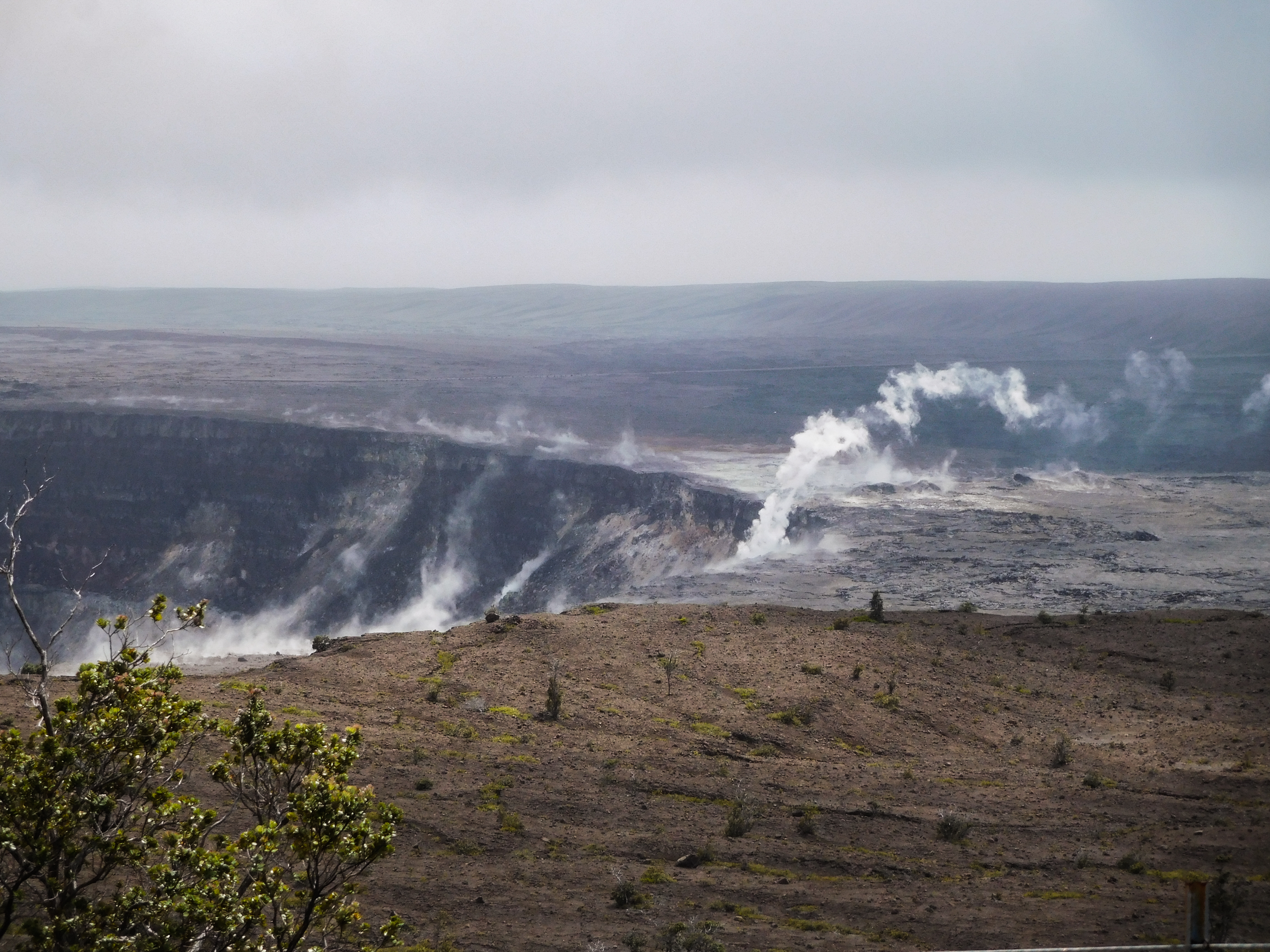
Man Survives 70-Foot Fall into Hawaii's Kilauea Volcano

On Wednesday evening (May 1), a man plummeted into Hawaii's Kīlauea caldera — and survived.
The man had climbed over a railing at the Steaming Bluff overlook to get closer to the edge of the cliff, which dropped down 300 feet (91 meters) into the caldera. At about 6:30 p.m. local time, he lost his footing and fell, according to a statement from the National Park Service.
A search team found the man a couple of hours later "alive, but seriously injured," according to the statement. He had fallen onto a narrow ledge about 70 feet (21 m) down from the cliff's edge. Using ropes, a stretcher and a helicopter, the rescue team airlifted the man to Hilo Medical Center. [Photos: Fiery Lava from Kilauea Volcano Erupts on Hawaii's Big Island]
Army officials said he was a Schofield Barracks soldier who was on a training mission in Pohakuloa, Hawaii. The 32-year-old man was in stable condition on Thursday, according to Hawaii News Now.
Kīlauea, though not currently erupting, is one of the most active volcanoes on the planet — just last year, a large eruption destroyed 700 homes and forced thousands of people to evacuate.
"Visitors should never cross safety barriers, especially around dangerous and destabilized cliff edges," John Broward, the chief ranger at Hawaii Volcanoes National Park, said in the statement. "Crossing safety barriers and entering closed areas can result in serious injuries and death."
- The 11 Biggest Volcanic Eruptions in History
- Big Blasts: History's 10 Most Destructive Volcanoes
- 10 Most Hazardous Countries For Volcanoes (Photos)
Originally published on Live Science.
Get the world’s most fascinating discoveries delivered straight to your inbox.

Yasemin is a staff writer at Live Science, covering health, neuroscience and biology. Her work has appeared in Scientific American, Science and the San Jose Mercury News. She has a bachelor's degree in biomedical engineering from the University of Connecticut and a graduate certificate in science communication from the University of California, Santa Cruz.
 Live Science Plus
Live Science Plus





